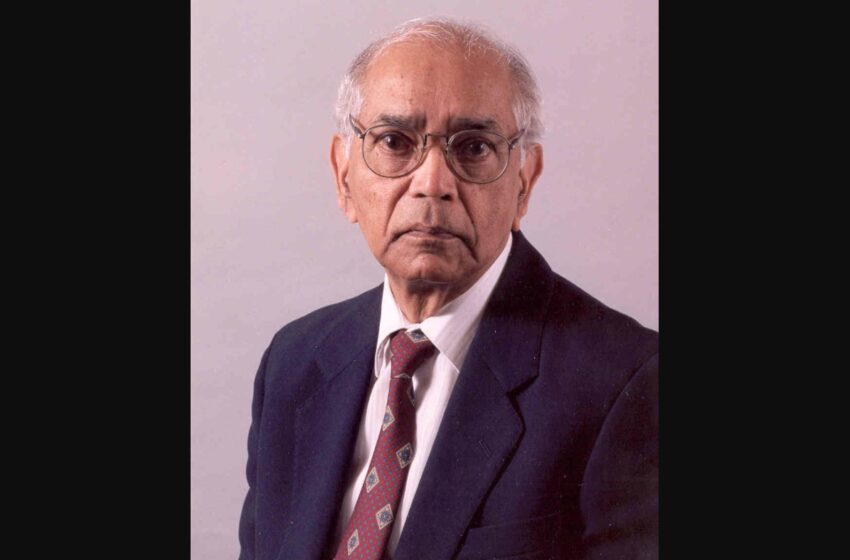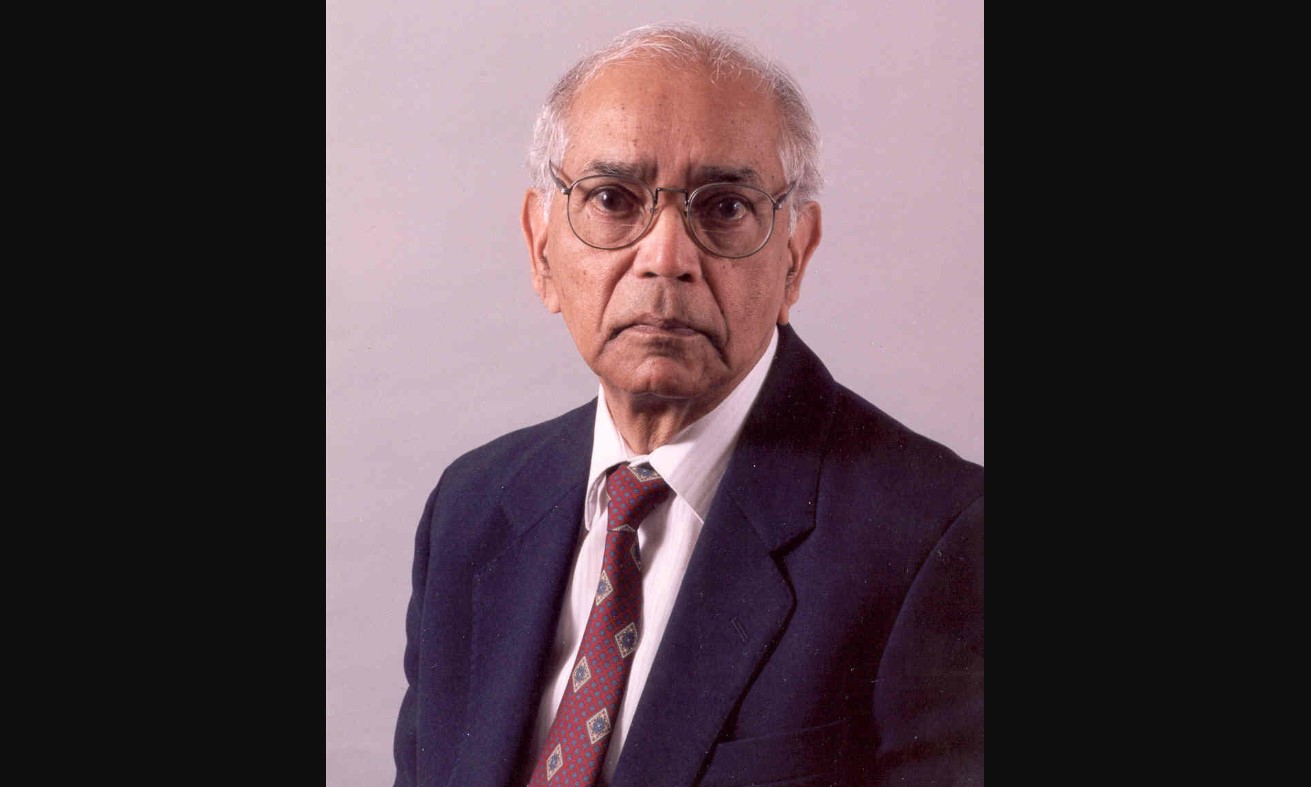C.R. Rao awarded 2023 International Prize in Statistics

 102-year-old Indian American professor’s work more than 75 years ago continues to exert a profound influence on science
102-year-old Indian American professor’s work more than 75 years ago continues to exert a profound influence on science
Calyampudi Radhakrishna (C.R.) Rao, an Indian American professor whose work more than 75 years ago continues to exert a profound influence on science, has been awarded the prestigious 2023 International Prize in Statistics.
Rao, now 102, will receive the prize, which comes with an $80,000 award, this July at the biennial International Statistical Institute World Statistics Congress in Ottawa, Ontario, Canada, the Alexandra, Virginia based organization announced.
He is currently professor emeritus at Pennsylvania State University and Research Professor at the University at Buffalo.
Read: Indian American mathematician Srinivasa Varadhan gets Padma Vibhushan (January 26, 2023)
In his remarkable 1945 paper published in the Bulletin of the Calcutta Mathematical Society, Rao demonstrated three fundamental results that paved the way for the modern field of statistics and provided statistical tools heavily used in science today, according to a media release
The first, now known as the Cramér-Rao lower bound, provides a means for knowing when a method for estimating a quantity is as good as any method can be.
The second result, named the Rao-Blackwell Theorem (because it was discovered independently by eminent statistician David Blackwell), provides a means for transforming an estimate into a better—in fact, an optimal—estimate.
Together, these results form a foundation on which much of statistics is built. And the third result provided insights that pioneered a new interdisciplinary field that has flourished as “information geometry.” Combined, these results help scientists more efficiently extract information from data.
Information geometry has recently been used to aid the understanding and optimization of Higgs boson measurements at the Large Hadron Collider, the world’s largest and most powerful particle accelerator.
It has also found applications in recent research on radars and antennas and contributed significantly to advancements in artificial intelligence, data science, signal processing, shape classification, and image segregation.
The Rao-Blackwell process has been applied to stereology, particle filtering, and computational econometrics, among others, while the Cramér-Rao lower bound is of great importance in such diverse fields as signal processing, spectroscopy, radar systems, multiple image radiography, risk analysis, and quantum physics.
Read: Indian American physicist’s $11.4 million gift for world science prize (July 27, 2022)
“In awarding this prize, we celebrate the monumental work by CR Rao that not only revolutionized statistical thinking in its time but also continues to exert enormous influence on human understanding of science across a wide spectrum of disciplines,” said Guy Nason, chair of the International Prize in Statistics Foundation.
The International Prize in Statistics is awarded every two years by a collaboration among five leading international statistics organizations.
The prize recognizes a major achievement by an individual or team in the statistics field, particularly an achievement of powerful and original ideas that has led to practical applications and breakthroughs in other disciplines.
Rao was the eighth of the ten children born to a Telugu family in Hadagali, Karnataka. His schooling was completed in Gudur, Nuzvid, Nandigama, and Visakhapatnam, all in Andhra Pradesh.
He received an MSc in mathematics from Andhra University and an MA in statistics from Calcutta University in 1943.
He obtained a PhD degree at King’s College at Cambridge University. He added a DSc degree, also from Cambridge, in 1965.
Rao first worked at the Indian Statistical Institute and the Anthropological Museum in Cambridge.
Later he held several important positions, as the Director of the Indian Statistical Institute, Jawaharlal Nehru Professor and National Professor in India, University Professor at the University of Pittsburgh and Eberly Professor and Chair of Statistics and Director of the Center for Multivariate Analysis at Pennsylvania State University.
Rao has received 38 honorary doctoral degrees from universities in 19 countries around the world and numerous awards and medals for his contributions to statistics and science. He is a member of eight National Academies in India, the United Kingdom, the United States, and Italy.
Rao was awarded the United States National Medal of Science, America’s highest award for lifetime achievement in fields of scientific research, in June 2002. He was given the India Science Award in 2010, the highest honor conferred by the government of India in a scientific domain.
In 2013, he was nominated for the Nobel Peace Prize, along with Miodrag Lovric[11] (Editor) and Shlomo Sawilowsky, for their contribution to the International Encyclopedia of Statistical Science.
He was most recently honoured with his 38th honorary doctorate by the Indian Institute of Technology, Kharagpur, on 26 July 2014 for “his contributions to the foundations of modern statistics.”
He was the President of the International Statistical Institute, Institute of Mathematical Statistics (USA), and the International Biometric Society. He was inducted into the Hall of Fame of India’s National Institution for Quality and Reliability (Chennai Branch) for his contribution to industrial statistics and the promotion of quality control programs in industries.
He was awarded the title of Padma Bhushan by the Indian Government (1968) and Padma Vibhushan in 2001.

